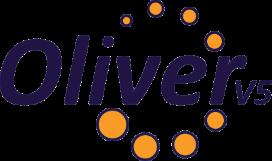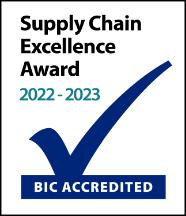










The BDS Academic Library Licence (ALL) is now in use the length of Great Britain. Recent adopters include Falmouth University in south west England, Swansea University in Wales and Edinburgh University in Scotland. In the North, Leeds University has also signed up.
“Four more universities adopting ALL is great news for BDS,” says Heather Sherman, Director of Academic Library Operations. “It is even better news for university libraries across the British Isles as the growing user base means ALL is a mature product with a proven track record that can adapt and respond to new adopters’ requirements with ease. There couldn’t be a better time to sign up for the ALL.”
Prestigious universities, including those with highly regarded library schools such as The University of Sheffield and Aberystwyth University, have now been using the ALL for nearly a year while early adopters Imperial College London remain whole-hearted supporters of the principles behind the ALL.



“The variety of universities now using the ALL for obtaining catalogue records for their collections is remarkable,” continues Heather. “Arts institutions, STEM universities, humanities, research… the ALL is meeting requirements successfully.”
New adopter, Swansea University Libraries and Archives, provides high-quality information services for all students and staff, as well as the public. Its Singleton Campus Library serves the Colleges of Arts and Humanities, Science, Medicine, Law, and Human and Health Sciences. The new Bay Campus Library serves the needs of the College of Engineering, School of Management, Computer Science and Mathematics.

“The BDS ALL enables us to automate metadata improvement for new book purchases and work to upgrade our current book records,” says Andrew Brown, Collections Services and Systems Librarian at Swansea. “Fewer touches save valuable staff cataloguing time which we can use for original cataloguing of older material and special collections.”
Edinburgh University Library is the first institution to adopt the ALL in Scotland. Since the bequest of Clement Litill’s Library in 1580 and the opening of the university’s doors in 1583, Edinburgh has grown into one of the world’s most prestigious universities and includes the likes of philosopher, David Hume and the “father of modern geology” James Hutton among the figures that have graced its library.
Creatively vibrant Falmouth University extends the ALL’s reach to the far southwest of England. It has libraries on its two campuses situated four miles apart. These provide digital resources, magazines, specialist material and journals, titles on DVD, Blu-Ray or to stream; image banks; news archives; business and creative databases; ebooks and e-journals.

“When you first create a new product you hope that your customers will find it of use. Then you hope to see its beneficial effect in the real world,” says Lesley Whyte, Managing Director of BDS. “It is very encouraging to see that, after so much investment and development work, the BDS ALL is proving so valuable to universities up and down the country.”
Find out more about BDS metadata for academic libraries at: www.bdslive.com/libraries/academic-libraries/ or contact Heather Sherman on heather.sherman@bdslive.com, 07711 378 086. More information on new ALL adopters can be found at: https://www.ed.ac.uk/information-services/library-museum-gallery https://www.falmouth.ac.uk/ https://library.leeds.ac.uk/
BDS has retained the British Library Cataloguing in Publication (CIP) contract. The contract has been awarded for four years with three possible one-year extensions.
The CIP programme records the published output of the United Kingdom. The contract to supply the metadata to fulfil this has been awarded to BDS since 1995. It is renewed at regular intervals and the successful bidder is appraised on quality, coverage, levels of service and price.
For the past eleven years BDS has bid jointly with Nielsen BookData, which is responsible for the UK and Ireland ISBN Agency, recording all new publications produced in the UK. BDS staff undertake the cataloguing work, observing the rigorous standards required by the contract. Thus, the industry’s two major forces offer the British Library
the most accurate and comprehensive coverage possible.
The CIP programme, which underpins the British National Bibliography, is vital for libraries, researchers and readers around the world. It ensures there is a complete catalogue of English language books published in the UK. Both physical and digital publishing are represented.
“As we approach BDS’s thirtieth year in business, we also approach thirty years of supplying the British Library with a record of the nation’s published material,” says Lesley Whyte, Managing Director at BDS. “BDS has grown into a world-leader in metadata provision. Our offering to the British Library is, today, better, richer and more comprehensive than ever. We look forward to working with the British Library over the coming years.”
Jo Shaw, Sales Director for Nielsen BookData’s Discovery Services added: “Nielsen BookData is delighted to be embarking on the most recent fouryear agreement to support the important work of the British Library’s Cataloguing in Publication programme together with BDS..”
Find out more about the British Library at www.bl.uk.



BDS’s long-standing relationship with schools’ library system supplier, Softlink, has received a boost with the integration of new functionality within Softlink’s Oliver v5 software.
“BDS Book Boost” offers students the chance to discover more about the books they want to read. A click opens the “BDS Book Boost” window. Here students can find out about a book’s contents, more about the author, they can read sample pages and view internal graphics.

“BDS Book Boost brings a school library’s collection to life,” says Barney Jenkins, Director of Business Operations at Softlink. “Now students can watch author videos, read Goodreads reviews and visit verified websites to know they have found the book for them. We are so pleased our Oliver systems can now offer so much more.”
BDS has worked with Softlink to integrate the BDS Tell Me More widget. This software is in use and popular in public libraries across the UK. Re-christened BDS Book Boost for the schools’ library environment, the look up and discovery tool goes live within Softlink’s Oliver v5 software at the beginning of June.
“BDS has been supplying metadata to Softlink since 2004,” says Sarah Armitage of BDS. “It has proven to be a creative and constructive relationship, that has benefitted thousands of school students not just in the UK but around the world, wherever UK-published English language books are used.”
BDS metadata is used in local authority, university and national libraries. Its accuracy and comprehensiveness means that it is also the perfect match for younger students. The new BDS Book Boost feature will unleash all its potential.
“BDS and Softlink working together is a success story,” continues Barney, “and the winners here are the schools that use the results of our long-standing collaboration. We want kids to enjoy books for study and recreation. The only way they are going to do that is if they find the books they want to read.”
To launch the inclusion of BDS Book Boost into Oliver v5, a series of four artist-designed posters have been commissioned. These will be for display in school libraries. The posters will promote the use of BDS Book Boost, two for junior schools and two for seniors. They will be printable up to A3 in size and will be downloadable from either the Softlink or BDS websites.
“When I was commissioned to create four posters to promote reading in schools, I was delighted and excited,” says Anne Darling, a Scottish artist and designer who works from France. “This is one of those rare challenges which offers the freedom to be creative and has a great purpose behind it.”
She has given BDSlife an insight into her plans. We can tell readers that there is a rocket theme, a surreal book landscape theme, and a superhero and a bibliophile octopus. The posters will be available soon after the BDS Book Boost launch, so watch your inbox for announcements.

To find out more about BDS working with Softlink, visit our case study, https://www. bdslive.com/case-studies/bds-powers-softlink/ Visit the Softlink website at https://www.softlinkint.com/product/oliver/

To talk with Softlink write to support@softlink co.uk or call 01993 883 401.


BDS sponsors the award. It is designed to promote excellence, original thinking and innovation by a library team or individual within the field of acquisitions.
Tough Topics are packs of books and activities chosen by librarians and professionals. They help young children process their emotions about their feelings around life changing events.
The packs aim to encourage children to talk to their parents, carers, grandparents and trusted adults. They contain related practical activities to complement the stories in each pack.
BDS’s Sarah Armitage met members of the project at the NAG Forum held in London in May. Catherine Barlow of North Yorkshire Libraries presented the project in a morning session.
The Award offers a cash prize of £200 of which £100 is donated to a charity of the winners’ choice. North Yorkshire Libraries chose the charity Young Minds (www.youngminds.org.uk).
“We are so delighted to see the importance of our new and exciting project recognised,” said Chrys Mellor, General Manager, North Yorkshire Libraries. “Tough Topics packs are already helping children and families in North Yorkshire navigate the most difficult conversations. We hope that other library authorities will also consider piloting similar packs to support families across the UK.”
Previous winners include the Royal Borough of Kensington and Chelsea Public Library Service, the University of Huddersfield, Derbyshire County Council Libraries and Heritage Division, Guildhall Library, Nottingham Trent University, the University of Kent, the eBook Accessibility Audit Team, University of Derby, Bradford Libraries, and Helen Hall of the University of Liverpool.
“BDS took on sponsorship of the 2022 award and we hope to continue to do so,” says Sarah Armitage. “Excellence, original thinking and innovation are features that have made BDS successful, so we look forward to learning more about the projects that are supporting such work in libraries.”
The NAG Forum and Seminar took place at Friends House, Euston in Central London. It ran parallel sessions for academic and public libraries with a shared opening session.

Speakers on the day included Karen Carden, University of the Arts, London, who featured in an interview published in our previous issue of BDSlife magazine. The afternoon session opened with a talk by Nick Poole, CEO of CILIP who has also featured in BDSlife magazine.
“The annual NAG event is always a lively, informative and addresses important issues facing libraries and librarians,” says Sarah. “I enjoyed meeting delegates from both the academic and public library sectors.”
For more information on the NAG, visit: https://nag.org.uk
Jenny Wright, Chief Metadata Officer at BDS and newly elected Chair of the European RDA Interest Group (EURIG), reports on the Group’s annual meeting.
For the first time since May 2019, the members of EURIG, which comprises 52 members from 31 countries, had their annual meeting in person. Hosted by the National Library of Greece, at the Stavros Niarchos Foundation Cultural Center, the chance to meet face to face and have conversations over coffee was appreciated by all who were able to attend. Since there are still some issues with international travel, some colleagues also joined us via Zoom.
Roberto Gómez Prada, National Library of Spain, Chair of EURIG, welcomed all delegates with an acknowledgement that it would take time for the dynamics of in-person meetings to recover. He gave thanks to the National Library of Greece for accommodating the late development of adding an online component to the meeting.
Many issues revolving around the implementation of RDA were discussed and a detailed report of every presentation is not possible here but some that readers might find interesting are described below.
Ahava Cohen, National Library of Israel and current European representative on the RSC, presented on the issues involved with cataloguing in non-Latin scripts. Many institutions in language communities which do not use Latin script are only applying RDA to the cataloguing of Latin script resources.
Some of the assumptions made by the Latin-scriptcentric RDA are that all scripts have bicamerality ( the use of upper and lower cases); diacritics; letters; numbers as numerals; and punctuation (in some languages, a comma is not a comma, and the question mark is not the only punctuation that can go “backto-front”).
The language of RDA has unintended pejorative connotations (for example, describing native
languages as vernacular) and does not have the scope to allow for the diversity that differing scripts bring. The RSC is responsive to feedback, but it’s only when those working on right to left/bottom to top/nonLatin scripts actually try to work in RDA that some problems come to light.

Michalis Geromis of the National Library of Greece described the work he and his colleagues have been doing with their catalogue.
The world knows that Greek civilization has had an enormous impact on the modern world, but there are relatively few bibliographic records for Greek resources in their system.
The National Library of Greece (EBE) has undertaken an ambitious programme to move from Unimarc to MARC21 with a new ILS, work with linked data, and implement RDA, not quite simultaneously but overlapping projects in a short timeframe. It has been challenging to change the culture of cataloguing, but output has much improved.
The drive to achieve true internationalisation of RDA continues. With its base in AACR2, RDA has significant biases and the areas identified as problematic have been moved into Community Resources in the Toolkit as a temporary measure. Working Groups on Religion, Extent, Official Languages and Place have been working on relevant development, and the Community Zone will become an area that can be filled directly by user communities.
In his final address to the group before I take on the role as Chair of EURIG, Roberto Gómez Prada gave a special thank you to members Alan Danskin, Thierry Clavel, Leif Andresen, and Bernhard Schubert. Although they are leaving EURIG, their contribution over the years has been much appreciated.
The BDS stand was busy throughout the three days of the recent London Book Fair. The theme of the BDS stand was “The Power of Metadata”.

The BDS Publisher Liaison Team had a full agenda of meetings. Newly appointed Publisher Liaison Officer, Jack Jamieson, met many BDS customers for the first time face to face.
“The London Book Fair is such an exciting event to be part of, “ said Jack. “This was my first Fair and nothing prepares you for the scale, intensity and friendliness you encounter.”
Since it started in 1971, The London Book Fair has grown to become a global platform for the publishing industry. Alongside doing business, the fair hosts seminars, workshops, awards and networking opportunities. BDS has attended the Fair since its foundation in 1995. It took its first stand in 2017 as the company grew into one of the industry’s most significant providers of metadata to the whole book supply chain.
This year’s attendance was over 30,000, representing a return to pre-pandemic levels. One new area of focus saw a newly launched Sustainability Lounge. It opened with Sherri Aldis, Director of the United Nations Regional Information Centre for Western Europe,
discussing Sustainability Development Goals (see our article Go Green with BDS).
The BDSDigital team were also present on stand to meet with publishers. BDS provides websites to the publishing industry. As online search and discovery plays such an important role in today’s commercial environment, a company that understands the role of metadata is vital when designing and building a web presence.
“We met with both current and prospective customers,” says Eric Green Managing Director, Digital. “The Book Fair gives my team the chance to sit down across a table and listen to what publishers and the book trade want from websites designed by us. It is an invaluable opportunity.”
The theme for this year’s BDS stand highlighted the vital yet often invisible role that metadata plays in every stage of the book supply chain.
“Without accurate and consistent metadata the book industry becomes a Tower of Babel,” says Lesley Whyte, Managing Director of BDS. “The interest and activity on our stand proves how vital our services are to publishers, booksellers, and libraries around the world.”
See BDS at the Book Fair on YouTube: https://youtu.be/EGzaDVnNPfQ.

Edinburgh is home to more bookshops than anywhere else in the UK outside London. What better location to host to this year’s Scottish Book Trade Conference? BDS sent Publisher Liaison Officer, Jack Jamieson, to take the pulse of Scottish Publishing and report back on its health.
The day started with the now traditional annual report on consumer behaviour. Steve Bohme, UK Research Director, Nielsen BookData, reported that book sales were down in Scotland. The biggest decline was in non-fiction. Ebooks also saw a decline in sales. However, audiobooks were on a significant rise.
The first keynote speaker of the day was author and broadcaster, Robert Ince. An ardent book lover, he highlighted the importance of representation in literature, especially with children. Children’s literature allows children to see themselves in the context of others and society at large.
A discussion involving representatives from Edinburgh bookshops of varying sizes, ranging from small independents to Waterstones, offered a consensus that regardless of how many bookshops open in Edinburgh, whether small or large, there is room for everyone as each bookshop caters to their own niche and community.
Tim Whiting, Managing Director, Bonnier Books UK, discussed the important job that publishers have to represent voices from marginalised communities. Bonnier Books UK was recently awarded the Inclusivity in Publishing prize at the London Book Fair International Excellence Awards.
Marketing Consultant Rachel May Quin spoke on the use of social media within the book trade. This was followed by a debate on the value of books. It highlighted the need for the UK book industry to charge more for titles and value its authors. The role of Amazon in the marketplace raised questions around legislating against discounting in the early stages of a book’s life cycle.
Issues around sustainability and calculating emissions as part of the whole book supply chain featured in a discussion between Kate Chambers, an environmental, social and governance consultant and Rob Lovell of the Scottish Mountaineering Press, winner of Scotland’s Small Press of the Year award.
The day closed with the screening of a specially commissioned film, featuring scenes filmed at the Moat Brae centre for children’s literature in Dumfries, the town where BDS is based. It highlighted the importance of children’s fiction writing in Scotland. Discussion that followed made the important and intriguing point that children’s books are for everyone, not just children.
The day was lively and enjoyed by all present. It proved, as it does every year, that Scottish publishing is alive, vibrant and an important part of the Scottish national identity.
For more information on Scottish publishing visit the https://www.publishingscotland.org/
www.imperial.ac.uk
Image with thanks to (c) Sandy Young Photography. The Value of Books, chaired by Katy Lockwood-Holmes (Floris Books) with Lewis Dawson (Bookspeed), Sally Pattie (Far from the Madding Crowd), Mary Paulson-Ellis (Society of Authors in Scotland) and Kevin Duffy (Bluemoose Books)The BDS Academic Library Licence (ALL) was in focus at this year’s UKSG Annual Conference and Exhibition. The conference took place at Glasgow’s SEC between the 13th and 15th of April 2023.
“Streamlining monograph metadata supply with BDS” was presented by Heather Sherman, Director of Academic Library Operations. Heather outlined how the ALL addresses the entire monograph supply chain – publishers, suppliers, purchasing consortia, system providers and libraries, to create a radically new service.
The BDS ALL is a response to the 2020 NAG Quality of Shelf Ready Metadata report and Jisc’s work on Plan M. Both highlighted that the current monograph metadata supply chain is costly, inefficient, and not fit for purpose.
Two “Breakout” sessions at 13.30 on Thursday 13th and 11.00 on Friday 14th, saw more than 120 delegates attend Heather’s presentation.
As well as outlining the service, she demonstrated how libraries such as Imperial College London have partnered with BDS. The result is a cost-effective,

hands-off solution for the supply and sharing of highquality records, service improvements and cost savings.
“Presenting ALL at UKSG was a great success. It was particularly good to be able to see people in person again.,” says Heather, who is a regular presenter at conferences and training events. “There was a high level of interest and engagement from delegates. It’s much better to talk to people face to face rather than on video calls. The conversations are always better.” UKSG works to facilitate discussion, stimulate research, support the professional development of its members and disseminate information about the scholarly communications sector. Its annual conference attracts delegates from around the world –librarians, publishers, content providers, consultants and intermediaries.

For more information on the BDS Academic Library Licence visit our academic libraries’ webpage.
For more information on UKSG visit www.uksg.org
 Heather Sherman of BDS at UKSG 2023
Heather Sherman of BDS at UKSG 2023
BDS was a Gold Sponsor of this year’s CONUL Conference. The event took place over the 24th and 25th May 2023 at Clayton Silver Springs in Cork, Ireland.
CONUL stands for the Consortium of National and University Libraries. It is the representative body of research libraries in Ireland and Northern Ireland.

Heather Sherman, Director of Academic Library Operations at BDS, was at the Conference where BDS had a stand promoting the BDS Academic Library Licence (ALL).
The theme for this year was “Sense and Sustainability – Environmental, Economic and Social Sustainability in Libraries”. Keynote speakers Rebekkah Smith Aldrich, Executive Director, MidHudson Library System, and Steven Gonzalez Monserrate, PhD candidate at MIT, opened each of the two day’s programme of presentations and discussion around the conference themes.
“The BDS Academic Library Licence fitted beautifully with this year’s conference theme,” says Heather Sherman. “The ALL makes sense, delivering single source records derived from bookin-hand publications, and sustainability is at the ALL’s heart, with its environmentally friendly record creation and removal of duplication of effort, carbon footprint and the systems needed to create them.”
BDS introduced the ALL at last year’s CONUL Conference. The innovative service delivers on industry body recommendations. The aim is to
simplify, streamline, improve and reduce costs across the metadata supply chain to academic libraries. It has rapidly gained adopters across the UK and generated significant interest in Ireland.
CONUL, in consideration of the climate emergency facing the world, sought to minimise the environmental impact of this year’s conference. Sponsors were encouraged to “go green”, use public transport wherever possible, and to minimise the amount of printed material distributed to delegates. In the spirit of the conference, BDS published its support material for the conference and information about sustainability and record creation at BDS on its website. The material links via QR code. Capture the code or click on it for more information.
People who wish to learn more about the BDS ALL should contact Heather on heather. sherman@bdslive.com or 07711 378086.
Find out more about the BDS Academic Library Licence at https://www.bdslive.com/libraries/ academic-libraries/
Find out more about CONUL at https://conul.ie
The invitation to tender for “Metadata Creation, QA, and Enhancement” and resulting acceptance onto the framework means that BDS can now bid for subsequent mini-tenders to supply metadata to the National Library of Ireland. The contract covers digital as well as printed material.
The successful bid positions BDS in a pre-eminent position to tender for English language metadata supply.
The NLI collects material through legal deposit, purchase and donation. The provision of access to its collections is a key objective and requires worldclass metadata to ensure accurate cataloguing and discoverability.
“This represents a huge endorsement from an internationally renowned institution,” says Sarah
Armitage, Director of Library Sales at BDS and the person responsible for drafting the bid. “BDS’s growth in Ireland is a remarkable success story. We look forward to working closely with all Irish libraries over the coming years.”
BDS already supplies every local authority library in Ireland and Northern Ireland.
Find out more about the National Library of Ireland at www.nli.ie

Universities and local authorities are leading the response to the climate emergency through publicly stated aims and initiatives. BDS stands with them by providing the means to help deliver carbon neutrality. Many councils and universities in the UK and Ireland have declared a Climate Emergency. They are looking at more sustainable ways of working. The concept of re-use and efficiency, so central to BDS initiatives such as the BDS ALL and the BDS Public Library Licence, work to the benefit of BDS customers and the planet.
BDS helps organisations reduce Scope 3 emissions. Scope 3 emissions are the result of activities not directly controlled by an organisation, in this case the creation, licensing and use of catalogue records.

There are significant ways in which metadata creation at BDS helps achieve a reduction in emissions. This results in benefits across the whole book and metadata supply chain.
BDS has reduced the handling of physical books. Books are no longer loaded onto carriers and delivered to BDS’s cataloguers in Scotland, then handled at the BDS offices and packaged for a second journey back to the publishers. Instead, BDS has worked closely with publishers to receive digital content for new and backlist publications. Books are now catalogued without any associated road miles.
The creation of accurate and reliable catalogue records from publications sourced from the publisher means that BDS metadata facilitates the direct delivery of physical items to branch libraries
and campuses, avoiding the unnecessary movement of books. This also has the added benefit of getting the book to the reader without any delay.
Such efficiency and simplicity removes duplication of effort. There is no need for multiple institutions to create their own records for the core material they acquire. One cataloguer using one workstation at BDS creates an accurate and comprehensive record which can be used by institutions around the world. This has the added benefit that an institution’s cataloguers are freed to work on specialist material in their collections.
BDS-generated records are fed into the supply chain at various points – libraries, systems’ suppliers, publishers – and users can be sure that the same record is doing the job for which it was created. This saves resources by avoiding the need to inspect, correct and rewrite records and the consequent hours of computer time and office resources this activity consumes. Adherence to internationally recognised standards means that BDS records should also be suitable for use by the international library community.
At BDS, all records created by BDS cataloguers and the publications they create the record from are stored on BDS servers. Catalogue records are then delivered to the recipient via an agreed protocol. The use of APIs for access to extended content to service end-user requests “live” directly from the BDS servers leads to a reduction of local storage at the library. Content is available only when needed. Thus, power consumption and the use of valuable raw materials is reduced yet further.
Since its foundation in 1995, BDS has placed efficiency and simplicity at the heart of its metadata creation process. With the growth in awareness of the dangers of climate change and the resulting worldwide initiatives to avert climate catastrophe, the principles to which BDS has adhered and continues to adopt, have greater significance today than ever before.
When you work with BDS you can be sure that BDS has made the investment to build the most efficient and environmentally friendly storage that technology can offer.
Over the past 10 years BDS has reduced its reliance on servers from eighty physical servers to just thirteen by investing in and developing the use of virtual servers. This results in an eighty-five percent reduction of energy consumption, so institutions using BDS metadata can rest-assured that they are helping the planet and not draining its resources unnecessarily.
BDS has adapted readily to hybrid working and has used it to reduce the company’s carbon footprint.

The BDS offices at Annadale House remain open and in use, allowing anyone wishing to “come to work” to do so. However, those working further afield or workers with special needs have the option of working from a home-office. BDS installs an employee’s home-office with the equipment needed to work as if in the “real” office, and it uses its own electric van to deliver the equipment. The result is a significant reduction in travel miles to and from the workplace.
EV technology has been proactively supported by BDS with the installation of charging points around the Crichton Business Park and University Campus, where BDS is based. These not only keep the BDS van charged and ready, but they are also available for

employees who wish to adopt electric as their means of getting to and from the office.
Wherever possible, BDS encourages the use of green alternatives to motorised, carbon-based transport. The company has developed a healthy cycling culture, while many employees simply enjoy the walk to work through the attractive Crichton gardens.
BDS is proud of its location on the Crichton Business Park set in acres of parkland with an environmentally progressive estate management culture.
The BDS offices are in a repurposed nineteenth century red-sandstone listed building, part of a complex of buildings that forms the legacy of Elizabeth Crichton, a pioneer in mental health treatment. Not only is BDS preserving part of the UK’s heritage, it is also avoiding the environmentally damaging effects of building from scratch.
Moving forward, BDS is collaborating with the Crichton Estate Management team to develop and employ renewable energy for its operation, including solar and geo-thermal alternatives.
BDS is a wonderful place to work. A rose garden beside Annandale House offers a delightful and peaceful place for breaks. Many staff bring a packed lunch and spend their lunch hour among the scent of roses and listening to birdsong. Trees have been donated to offset carbon emissions and store carbon, with the added benefit of enhancing the grounds. The lawn is used for receptions for cultural events that BDS sponsors.
Inside the office, BDS monitors air quality round the clock to ensure that the intellectually demanding task of cataloguing books is performed in optimal conditions. The BDS office is paper-free and all waste generated from the day to day operation of the company is recycled as is the legacy computer equipment. This is sent for refurbishment and reuse or for the recovery of valuable components and metals that are increasingly rare or environmentally damaging to extract from the earth.
Sponsorship of library-related conferences has long been important to BDS. With libraries leading the way in awareness-raising around environmental issues, BDS continues to support events, committees and cultural activities that highlight issues such as sustainability.
Only recently BDS has sponsored the CONUL conference in Ireland, the theme of which in 2023 is “Sense and Sustainability”, the NAG Award for Excellence, and the MDG conference which this year is themed around “Re-Discovery”.
BDS also supports its staff who sit on international committees that govern the development of standards relating to classification and cataloguing. The developing vocabulary of terms available within the community of librarians, including those relating to the burning issues of the day, are at the heart of BDS’s engagement.


Linked to environmental support is the help BDS provides to the local community, in the form of sponsorship of local cultural events,, such as BDS’s seven year-long support of the visit of Shakespeare’s Globe Theatre to Dumfries, in Scotland. This has enabled students and the general public to see worldclass theatre without undertaking a seven-hundredmile round trip to London.

Currently, BDS is supporting Absolute Classics, a music initiative that brings internationally renowned musicians to Dumfries and Galloway to perform locally and to offer workshops for students in schools. Not only does this cut down on audience miles travelled, reducing carbon emissions, but such sponsorship is also offered in the belief that culture and education matters in a world facing up to the challenges posed by climate change and the consequent social and economic upheavals it brings about.
While efficiency and simplicity have been at the heart of the culture at BDS, now more than ever BDS recognises the need to strive for a better future. Libraries around the world will be part of that better future and BDS will stand alongside those libraries ensuring the right book gets to the right reader in an environmentally friendly and sustainable world.
Hamlet performed by Shakespeare’s Globe Theatre in the grounds of the Crichton Estate, Dumfries where BDS is based.
The award covers a diverse range of book industry sectors including publishers, booksellers, printers, distributors, wholesalers and service providers. In all, 27 organisations hold BIC SCEA accreditation. These include Gardners, Harper Collins Publishers, Ingram Publisher Services UK, Macmillan Distribution, Pan Macmillan, Penguin Random House, Batch and Sage Publishing.
The award stands alongside BDS’s BIC Technology Excellence in Libraries Award where BDS holds Gold status.
Application to BIC SCEA accreditation is free and open to BIC members and non-members. The scope of the award covers BIC’s areas of interest and activity across the supply chain. This includes the provision of product metadata using ONIX through to the efficient management of returns and reporting of sales.
Environmental concerns addressed
The scheme enables book industry organisations to demonstrate the efficiency of their supply chains for both physical and digital products. Thus, they gain recognition with trading partners and the book industry for business efficiency, customer service, environmental concern and innovation. It aims to reward companies for their investment in automation and innovative solutions to the supply chain issues they face.

“We are delighted to retain BIC SCEA accreditation. We have held it since the awards were first introduced,” says Keith Walters, Trade Data Manager at BDS. “Furthermore, today’s Awards reflect changing developments and environmental concerns around supply chain management. It is therefore particularly encouraging that the SCEA panel place BDS in the select few award winners.”
Organisations that wish to apply for accreditation can find out more about the SCEA Accreditation Scheme at https://bic.org.uk/resources/accreditations-overview/supply-chain-excellence-award/
BDS will be Gold Sponsor for the forthcoming Metadata Discovery Group (MDG) Conference. The event takes place on the 6th to 8th of September, 2023 at IET Birmingham: Austin Court.
Two full days of presentations and discussion will explore all aspects of metadata and discovery. This includes traditional cataloguing in libraries and archives, metadata management, research data management and digital preservation, digital libraries, and beyond.
The third day will host the UK Committee on RDA (UKCoR) for discussion covering developments relating to RDA. The UK Committee on RDA (UKCoR) is chaired by Jenny Wright, Chief Metadata Officer at BDS.
The conference will see a return to an in-person conference after the previous years’ virtual events. The MDG website announces:
“As we Re-vitalise the Metadata & Discovery Group in 2023, we hope to Re-energise our communities of practice, Re-establish our principles, and Re-imagine the future of description/metadata.
To that end, this year’s MDG Conference aims to explore the topic of “Re-Discovery” as discovery is at the heart of the information world and the vital purpose of all metadata work.”
The MDG encourages submissions for papers from library professionals.
“The long-standing relationship BDS has with the Metadata Discovery Group remains as strong as ever,” says Lesley Whyte. “My colleague, Jenny Wright, will be at the conference and we look forward to reporting on the event in a future issue of BDSlife.”

Internationally recognised pianist, Oxana Shevchenko was the soloist in Grieg’s piano concerto as part of a concert given at The Bridge venue, Dumfries, in April. BDS was a sponsor of the event.

Other works on the programme of Romantic classics were Vocalise by Rachmaninov and Tchaikovsky’s Symphony no. 5. The concert was given by the Solway Sinfonia under the baton of Jonathan Mann.

The Solway Sinfonia is an amateur orchestra based in Dumfries & Galloway. Its members are from the south of Scotland and north of England. Founded in 1979, many of the orchestra’s members make their careers in music. The orchestra gives a number of public concerts each year.
“What a great opportunity for local musicians, including a host of young upcoming talent, to perform marvellous and technically challenging music to such an appreciative audience,” says Lesley Whyte. “BDS was delighted to sponsor the Solway Sinfonia.”
A full house admired the artistry and flawless technique of Oxana Shevchenko, winner of the 2010 Scottish International Piano Competition and the International Premio Franz Lizst Competition in 2015. In the second half of the concert, conductor Jonathan Mann thrilled the audience with a scintillating rendition of the 5th symphony, arguably the Russian composer’s most demanding symphonic work.
“The Solway Symphonia would like to express its gratitude to BDS and Bluthner Pianos for their support which has enabled us to bring Oxana to Dumfries,” says Alex McQuistan, Chairman of the Solway Sinfonia. “BDS is a great support to the musical life of our region. We look forward to working with them in the future on other new and exciting projects.”
For more information on the Solway Sinfonia visit https://solwaysinfonia.org.uk/

In each issue you will catch up on the latest ideas from experts, read interviews with professionals and industry leaders, as well as read about BDS, its innovations, events and products and services relevant to the book trade.
Sign up to receive an email as soon as each issue is ready to read online or in pdf format.